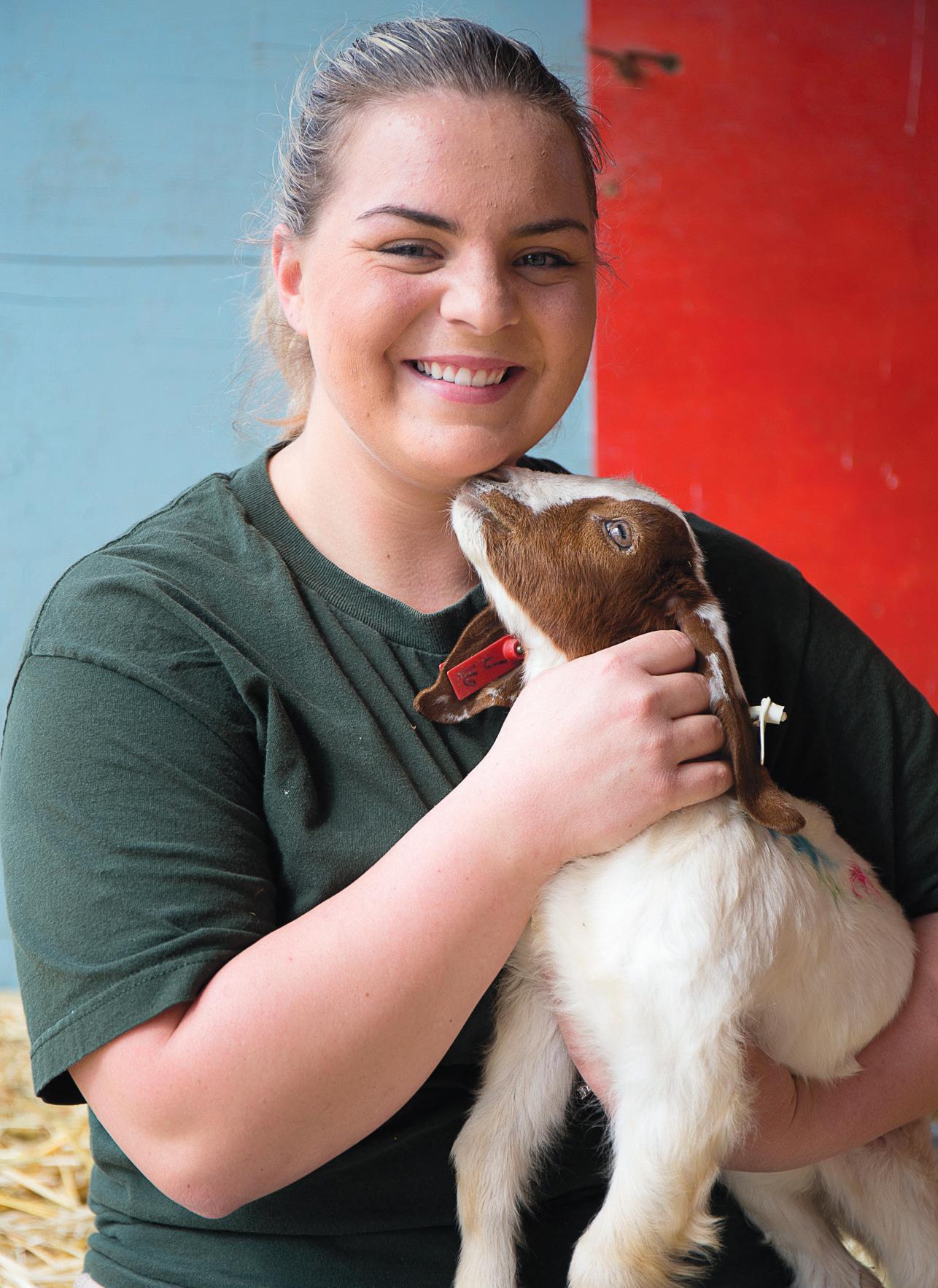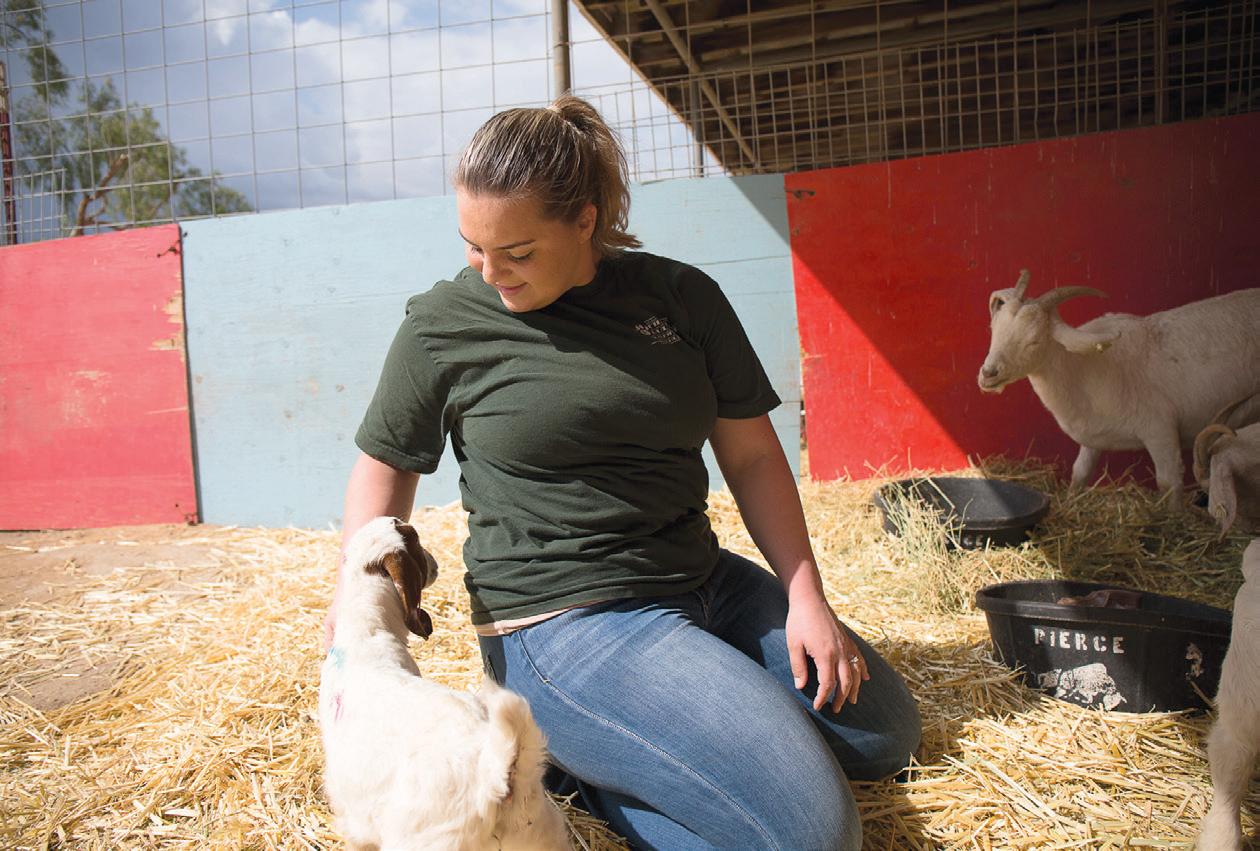
3 minute read
‘Helping others that can not help themselves’ Animal Science major makes it her business to care of critters
One of Candace Stines’ steers was losing weight. A full physical was done to figure out what was wrong but, in the end, it died of unknown causes. She was determined to find out what had killed the steer.
This need for answers led Stines to take animal nutrition courses at Pierce College and to pursue a career in animal science.
Advertisement
Stines, 21, was born and raised in Fillmore, California. She joined the 4-H Youth Development and Mentoring Program at the age of nine. Soon after, Stines signed up with the Future Farmers for America (FFA) organization in 2008, where she raised cattle.
“I’ve raised cattle for years, and I’ve done everything with animals, from when they are tiny little babies pulling them out of the cow. Being able to feel viable life inside of a cow, is the most important and amazing thing in the world,” Stines said.
When Stines started attending Pierce College she did not have plans to become a veterinarian. Leland Shapiro, who is now retired, was one of the professors who encouraged her to take classes in that field.
“I wouldn’t have learned so much if it wasn’t for the animals on the farm and for Dr. Shapiro,” Stines said. “He was just telling me that if I had my mind set on what I wanted to do, no one can stop me.”
“Helping others that can not help themselves” was a motto that Stines had learned from Shapiro. Stines believes it is a veterinarian’s job to know the condition of their animals, because an animal does not have the ability to say what is wrong with them.
One such instance was when Stines had to assist a cow in labor. The calf had become stuck in it’s mothers’ pelvis, so Stines’ had to push the baby back into the birthing canal and reposition it before she could continue. Even now, she remembers the overwhelming pressure and anxiety she felt during the delivery.
“It was really difficult because a veterinarian couldn’t get out there,” Stines said. “I was by myself with about 20-30 people behind me, just watching this cow give birth. I was dying, sweaty, and it was 3 a.m. When I stuck my hand in there and could feel the calf suck on my fingers and I said ‘I’m not stopping,’ because the calf could die and the mom could die.”
That moment left an impact on Stines. She encourages others to go to Farmwalk to see the animals. It is Stines’ hope that people attending the event would see how dedicated the students are to caring for the animals.
“Helping with the petting zoo, watching the doe’s [female goats] give birth and being able to see that happen is like once in a lifetime,” Stines said. “That’s why we have Farmwalk. To tell people about these things like what we vaccinate [animals] for, why we vaccinate them, and why we feed certain types of food, and environmental enrichment.”
Despite the continuous care the animals receive, the department has been scrutinized by outside sources. In recent years an animal activist complained that the farm animals at Pierce College were not given enough shelter, and were dying under the sun.

“I know that someone contacted Paddy Warner, who is in charge of the equine production, about how there was a horse in the middle of the arena and thought this horse was dead, that it was standing up and it was on wheels,” Stines said.
“That horse was fake. I laughed so hard because I thought that was the most ridiculous thing.”
Apart from school and working as a veterinary assistant at an animal clinic, Stines is the president of the Pre-Vet club.
“The club is like family,” Stines said. “Once I joined I was able to see that they really do care about wanting you to succeed and they have a lot of resources to be able to teach you different things. That’s why I wanted to continue with the club and also have more activities to make this club more of a family.”
Speakers such as veterinarians from different practices and other schools come to speak at club meeting. They also arrange trips to universities, such as University of California, Davis and Cal Poly technics Luis Obispo.
Funding for the field trips usually comes from events such as the Farmwalk and bake sales. One trip in particular called “Have Trunk Will Travel” takes the club to an elephant reservation in Perris, California.
Chanera Peck, Public Relations officer for the Pre-Vet club and Pre-Vet medicine major, believes that anyone who loves animals or who likes to work with animals can join the group.
However, the position of club president calls for a certain skill set and level of patience.
“The president of the club has a lot of responsibility like signing paperwork for keeping the club running, for us to have our room, for us to go on any trips off campus and things like that,” Peck said. “[Candace] is basically
[For the full story visit theroundupnews.com]










